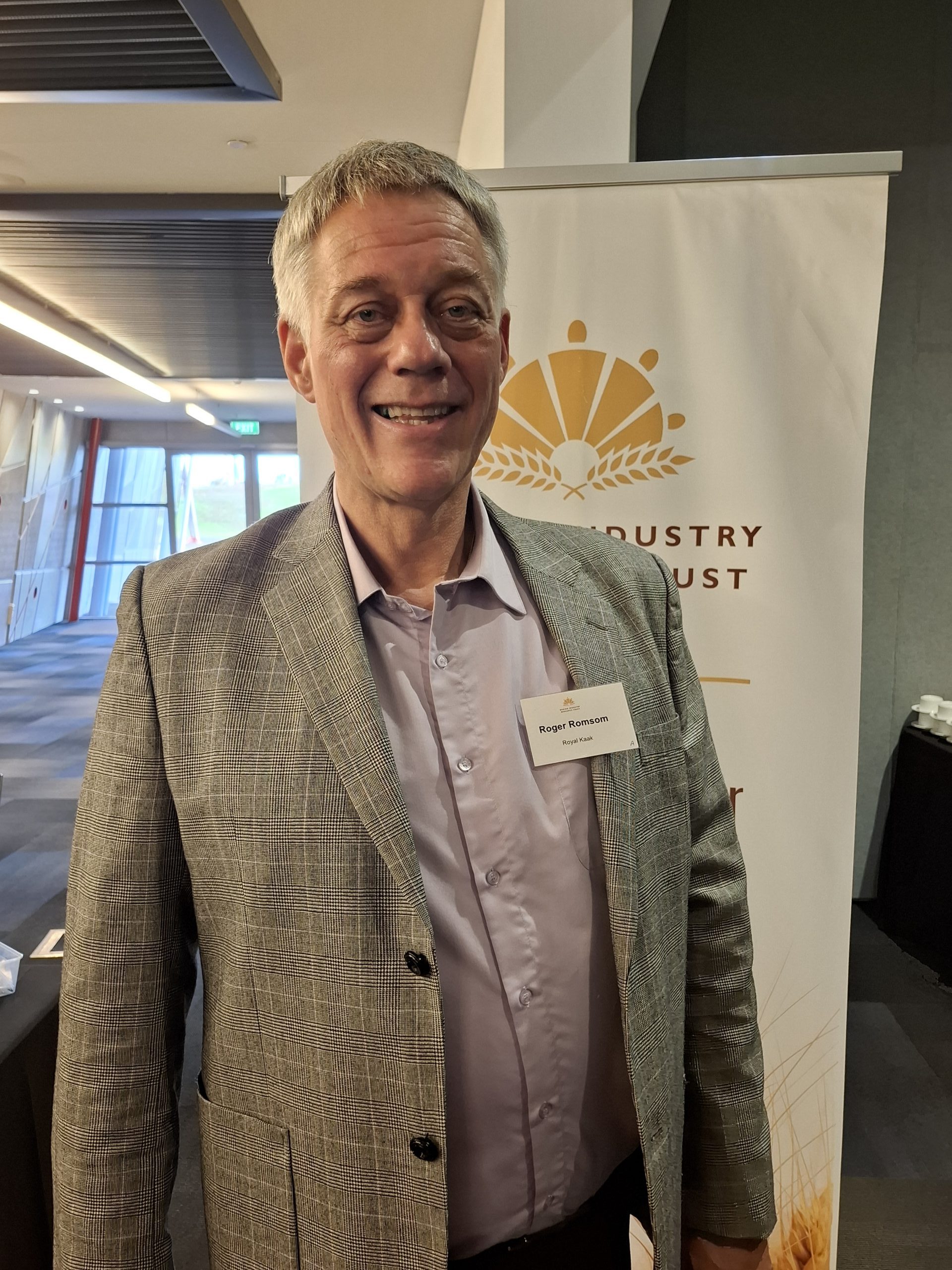Recent Articles
- 2025 Entrants Bread Baker of the Year Competition
- New logo shines light on New Zealand-grown grains
- Recovering valuable resources to create sustainable biogas and biofertilizer
- Field to Flour: Can we reduce our footprint?
- Leading Action on Food Waste
- Bread bags from bread returns
- Baking Global Technology Scan
- Sustainability for the Baking Industry – Food without Footprint
- Better energy management for bakers
- Update on the Soft Plastic Recycling Scheme
Roger Romsom and Rutger Drost, Royal Kaak
 Roger Romsom has dedicated nearly 40 years to the food processing industry, with 27 of those years focused on bakery production lines at Royal Kaak. As the head of market development for the Asia and Oceania regions, he is constantly seeking innovative solutions to enhance bakery processes. With a background in mechanical engineering and extensive hands-on experience, his approach combines technical expertise with practical insight to drive efficiency and innovation.
Roger Romsom has dedicated nearly 40 years to the food processing industry, with 27 of those years focused on bakery production lines at Royal Kaak. As the head of market development for the Asia and Oceania regions, he is constantly seeking innovative solutions to enhance bakery processes. With a background in mechanical engineering and extensive hands-on experience, his approach combines technical expertise with practical insight to drive efficiency and innovation.
Rutger Drost has 15 years of experience in the B2B food and pharmaceuticals industries, after starting his career as strategy consultant. He joined Royal Kaak 2 years ago and is responsible for global business development, with a strong focus on sustainability. Rutger has led the development of Royal Kaak’s energy and sustainability solutions for bakeries, and he works on partnerships with other machinery suppliers to the baking industry to expand Royal Kaak’s Silo-to-Truck proposition. Rutger has a background in business administration and focuses on turning business strategies into practical solutions.
Helping Bakeries Prepare for the Future
Sustainability is woven into Royal Kaak’s DNA, driving innovation in product development. They have ambitious goals to supply integrated production lines with no ecological footprint, aiming for CO2-neutral lines, production processes, and supply chains.
Roger emphasized the urgency of starting now, not waiting 20 years to change our mentality. New designs today will prepare us for the future.
The focus on energy efficiency and consumption across the industry is driven by climate change, increasing government regulations, limited fossil fuel supplies, and geopolitical tensions affecting energy supply and prices—challenges that hit bakeries hard. Kaak is exploring ways to make a difference and reduce costs and CO2 emissions specifically in bakeries.
Energy use accounts for a considerable part of a bakery’s footprint, with ovens taking 80% of that. Most bakeries rely on natural gas, and while there’s a willingness to electrify, it’s a significant investment. High electricity costs and grid congestion are other barriers that hold back bakeries. Will power be available as more people electrify, and how long will bakeries wait for a grid connection?
To reduce energy consumption and emissions while remaining competitive, Roger and Rutger suggest starting with simple energy savings: turn off equipment not in use, switch off fully rather than leaving on standby, optimize line capacity, reduce compressed air pressure, and set up automatic switching off of conveyor belts.
Such low hanging fruit energy savings can be identified by carefully analysing actual energy consumption. Kaak can scan equipment and conduct onsite assessments to identify energy savings opportunities with the oven, and across the entire line.
Long-term solutions are more structural, including options for electric and hybrid ovens, renewable energy generation (e.g., solar heat), and heat storage.
The green bakery of the future might feature a hybrid oven, renewable energy, a thermal buffer (heat battery storing heat, not electricity), and heat as a service (allowing ovens to run on the most economical energy source). Not relying on a single energy source is key.
When considering new equipment, it’s not just about the initial cost but also emissions and energy consumption. Consider current and future running costs as scenarios change.
Food waste and bread returns are also critical issues. Public awareness means bakeries will feel pressure to address these. Rutger and Roger outlined two potential solutions focused on production control: bake less, supplying 80% fresh and 20% frozen (with consistent quality), or deliver par-baked bread to be finished in supermarkets (again, maintaining high quality).
The path to a greener future requires changes in human behaviour to reduce food waste, the use of sustainable ingredients, and embracing sustainability in bakeries. Manufacturers like Royal Kaak and bakeries can work together to resolve issues, find opportunities and prepare for the future now.

